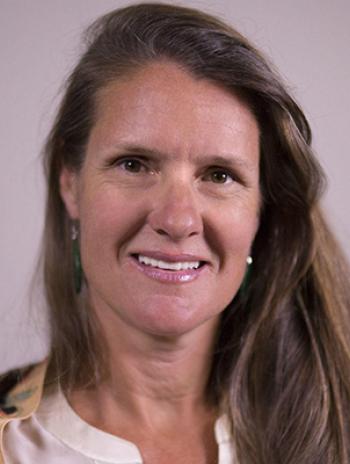
We interviewed Lisa Young Larance, a pioneer in the antiviolence intervention field, who will be joining the GSSWSR in Fall 2023 as assistant professor.
Can you tell us about your research interests and past scholarship?
My research explores topics at the intersection of intimate partner violence and abuse, gender, race, sexuality, criminalization, and intervention – with a particular focus on the experiences of women who have survived and caused harm in their intimate relationships. I employ a range of mixed methods to amplify the voices of those too often muted by systems of oppression. The mission of my scholarship is to challenge and dismantle such systems while advancing the well-being of vulnerable people.
We understand you have written a new book. Can you tell us a little bit about its contents and the process of writing it?
My forthcoming book is scheduled for August 2024 publication by the University of California Press. The book explores the cumulative harms of 33 cisgender women’s probation involvement, child protective services contact, and court-ordered antiviolence intervention due to their use of force or alleged use of force. It also brings attention to the ways the systems-involved women strategically and autonomously cultivated their own informal networks, healing, and repair. The book builds on my three years of mixed qualitative dissertation research. I wanted to understand the women’s firsthand experiences as systems identified “offenders,” despite their histories of domestic and sexual violence survivorship. Rather than seeing themselves as “victims” or “offenders,” the women described themselves as being or feeling broken as well as having caused others’ breakage. In the book, I encourage a broader understanding of the human experience. I hope the book will facilitate practitioners’ and researchers’ work beyond what I refer to as the victim-offender binary by holistically understanding and addressing people’s lived experience.
What courses will you be teaching at the GSSWSR?
I will be teaching Foundation Practice I and Trauma-Informed Social Work Practice in the fall of 2023. In Spring 2024, I will be teaching Foundation Practice II and a special topics course, “From Grassroots Movements to Carceral and Community-based Responses to Domestic Violence.” I am designing the course to guide students’ understanding of how a movement evolved into a range of formal intervention and policy responses that continue to shape how the victim-offender binary operates.
How does social work relate to other social sciences such as sociology? What are your hopes for incorporating your interdisciplinary approach into the classes you will teach at the GSSWSR?
As a women’s studies major, history minor, social worker, and sociologist, I view social work through an interdisciplinary lens. My hope for incorporating an interdisciplinary approach into the classes I teach is that students will be inspired to learn from multiple disciplines. By understanding and appreciating knowledge across fields, we, as social workers, increase our capacity to innovatively address individual challenges and interrupt social inequities.
What do you hope for the future of social work?
My hope for the future of social work is that we will continue to build and embrace our dynamic skill sets. Being on the front-lines — whether in direct practice, policy, or research settings — we are ideally situated to promote individual well-being while challenging inequity.
What brought you to the GSSWSR?
The faculty, the institution, and the students brought me to GSSWSR. I am delighted to be part of an exceptional community of scholars and, as a Smith College alumnae, to be part of Bryn Mawr. The students are passionate and curious about learning. I look forward to co-creating learning spaces that facilitate social change.
What other international work have you done around anti-violence intervention?
I have ongoing practice and research projects in Victoria, Australia and with the United States Air Force that build upon my early career program design and curriculum co-creation.
How did your experience at a women’s college impact the work you ended up doing?
As an undergraduate at Smith College, I gained a deep appreciation for how we all suffer when the experiences of those marginalized by dominant power structures go unrecognized. That awareness continues to inspire my practice and research.